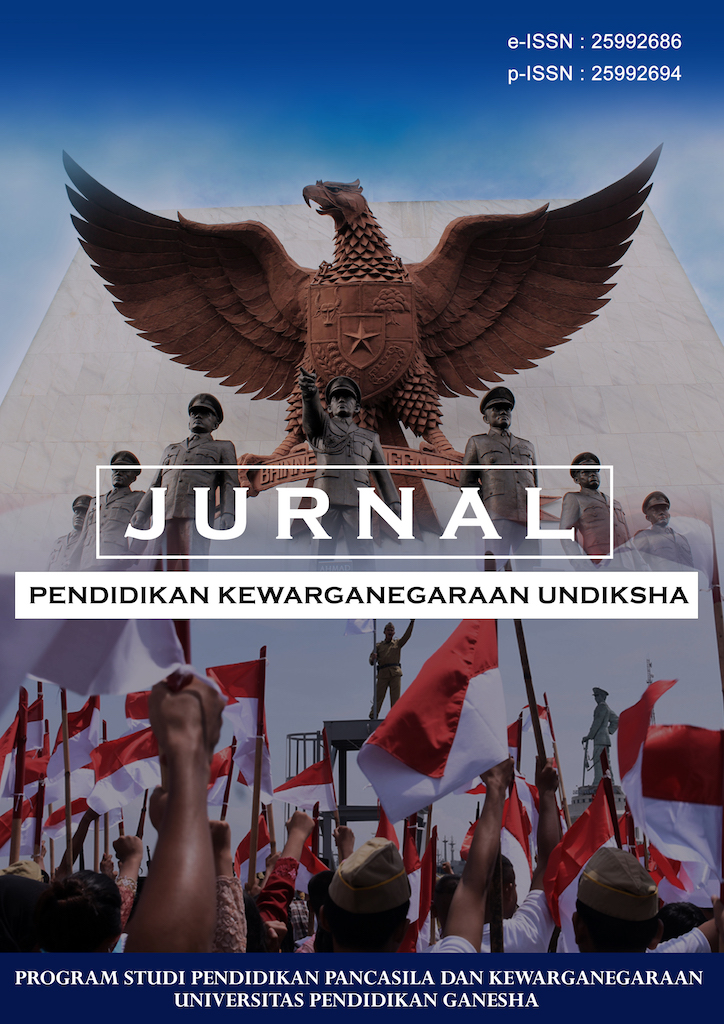LEGAL PROTECTION OF DIPLOMATIC REPRESENTATIVE BUILDING ASSESSED FROM THE PERSPECTIVE OF THE 1961 WINA CONVENTION (Case Study: Suicide Bombing In Kabul Afghanistan Near United States Embassy)
DOI:
https://doi.org/10.23887/jpku.v8i3.28601Abstrak
The study aims to identify and analysts the legal protections of diplomatic buildings of the United States are reviewed from the perspective of the Vienna Convention 1961 as well as the recipient state answer of Kabul Afghanistan in the case of suicide bombing near the U.S. embassy. The study uses a type of normative legal research through a conceptual approach, a statutory approach and a historical approach that is then analyzers by using primary, secondary, and tertiary legal substances. The results showed that the protection of the law against diplomatic buildings is governed in article 25 of the 1961 Vienna Convention describing the building of representatives and facilities therein can not be contested by the recipient State obliged to provide facilities to support the activities of representatives outside the country and the form of liability of the recipient of Afghanistan to the diplomatic buildings by replacing any damages for both physical damage and discomfort experienced by 1961 United , as well as deploying security officers to anticipate follow-up attacks by the Taliban against the environment of United States diplomatic buildings
Unduhan
Diterbitkan
Terbitan
Bagian
Lisensi
Authors who publish with the Jurnal Pendidikan Kewarganegaraan Undiksha agree to the following terms:
- Authors retain copyright and grant the journal the right of first publication with the work simultaneously licensed under a Creative Commons Attribution License (CC BY-SA 4.0) that allows others to share the work with an acknowledgment of the work's authorship and initial publication in this journal.
- Authors are able to enter into separate, additional contractual arrangements for the non-exclusive distribution of the journal's published version of the work (e.g., post it to an institutional repository or publish it in a book), with an acknowledgment of its initial publication in this journal.
- Authors are permitted and encouraged to post their work online (e.g., in institutional repositories or on their website) prior to and during the submission process, as it can lead to productive exchanges, as well as earlier and greater citation of published work. (See The Effect of Open Access)










